I built an online income and, seven years and 50 countries later, I’m still living life on the road. But I didn’t just decide to throw in the towel one day—this is exactly how I made the transition to location independence.
How to Become Location Independent
When I’m not watching the sunrise at Angkor Wat in Cambodia, or camping in the Australian Outback, or taking part in a street carnival in southern Peru, you can find me frantically typing away on my laptop in hostel kitchens, coffee shops and hammocks around the world.
As a full-time digital nomad and travel writer, I have the freedom to work from anywhere.
My partner, Lee, is a web designer from England and, together, we’ve traversed the globe making a living completely online. I won’t sugar coat it—I’m pretty sure I’ve got one of the best travel jobs in the world.
The idea that I could live, work and travel on my own terms seemed crazy at first, but there’s never been a better time to build a lifestyle like this. Fast WiFi is available almost anywhere you go. The rapidly growing pace of the internet means that there are jobs galore in web design, app development, freelance writing, SEO and more.
In many cases, you can actually work abroad without experience!
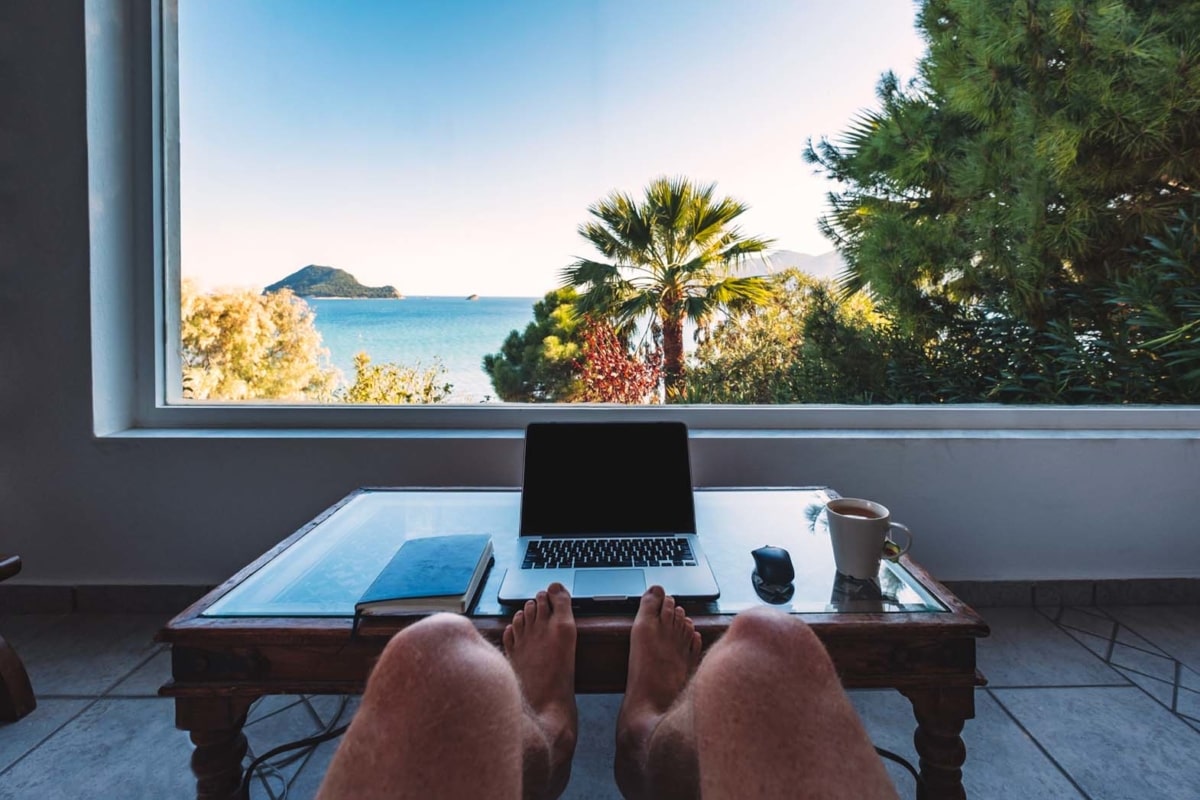
More companies are becoming comfortable with hiring freelancers on the other side of the world who they’ll never actually meet.
According to research by Upwork, 48 percent of companies are open to using flexible workers to meet project demands and find skills not available in-house.
So, I quit my exhausting job with Greenpeace, guilting strangers into giving me their credit card details to save the polar bears. I was tired of chasing people with a clipboard while they were simply walking down the street.
So, I took to the internet.
Seven years and 50 countries later, I’m still living life on the road.
Of course, earning an income online isn’t limited to writing, though it is an excellent option if you possess the skills, as many companies hire essay writers for their projects.
You could also build a remote career in graphic design, web design, translation and more. The sky’s the limit when it comes to location independent jobs!
If you’re looking to untether yourself from your cubicle and pursu
1. Establish a Professional Presence Online
After quitting my job, I was broke, desperate and struggling to find a job. Ultimately, I started a travel blog and created a profile on Upwork, a freelance platform that connects businesses with freelancers, and I began freelance writing while backpacking around New Zealand.
While I didn’t have any experience or any writing samples, I poured all of my energy into writing confident, personalized cover letters. I applied for every writing job I could find and, when I finally got my first one, I made sure that I’d earn a five-star rating and glowing praise on my profile by perfecting the assignment.
Doing well on the first job made it easier to get a second job and so on.
I learned that, if you do good work and promote yourself, clients will eventually come to you.

Eventually, I moved with Lee—who I met in New Zealand on a Working Holiday Visa—to the North of England, where I started working at a nursery full time. (That’s a “daycare” for you North Americans.) But I kept building up my freelance career in the evenings and weekends after my day job.
Although it meant that I was working 60 hour weeks, I still consider this a very smart move; it meant that I had a guaranteed income through my full-time job while I could slowly build up my reputation as a freelancer. It also meant that I was able to save up an emergency fund as a buffer in case I needed it.
In time, I was able to go part-time at my job and part-time with freelance, and, after about 14 months, I finally “quit my day job” fully and pursued freelance full time.
2. Give the Nomadic Lifestyle a Trial Run
You don’t have to jump head-first into a location-independent lifestyle. Because it’s vastly different from the life to which you’ve likely become accustomed, it’s a smart idea to dip your toes in the water to see if you even enjoy it.
You don’t want to end up 2,495 miles from home with nothing but a laptop and a backpack and realize you’d actually prefer to be home with all of the belongings you wish you’d never given away.
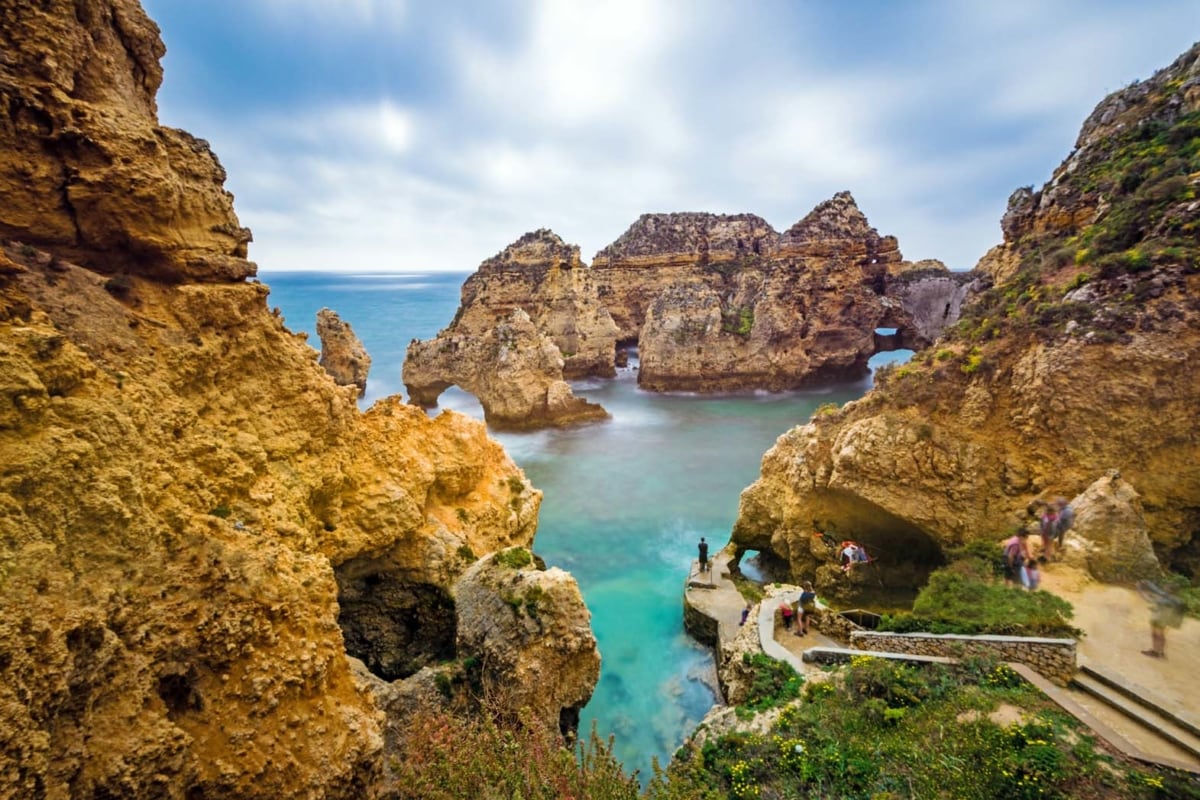
Back in 2011, Lee and I did a three-week trial run of a location-independent lifestyle by renting an apartment on the beach in Algarve, Portugal from which to work. This was before we had packed up, sold everything and committed to the lifestyle.
During this trial, we learned a few very important things:
- We learned that choosing the right accommodation is important. Finding somewhere with a high-speed internet connection and enough space to get work done is crucial.
- One of the biggest challenges of this lifestyle is staying disciplined. Even when a beautiful beach is beckoning you from right outside your window. I had to become as efficient as possible so that I could get things done and enjoy the sunshine.
- Eventually, I started to learn about the “feast or famine” nature of freelance work and how to keep a steady flow of work, as well as how to make the most of the slower times.
- Also, we learned that, in order to achieve the right work-life balance, it’s crucial to travel as slowly as possible. Our three weeks in Portugal was just barely enough time to enjoy all of the attractions and activities we wanted to see because we had to fit it around our work.
3. Figure out the Technical Details
This is the boring but necessary stuff if you do decide to dive in. Before you become location independent, you need to figure out all of the technical details. Here are some of the important questions that you need to consider:
- Find the best travel insurance companies for the destinations you will be traveling. Do they cover activities you might be doing like surfing or skiing?
- Do you still need to pay taxes in your home country?
- What are the best bank accounts for travel, and do it offer you free international withdrawals?
- With no permanent address, will a friend or relative be willing to receive your mail for you?
- Do you make any monthly payments for things like phone or internet bills, gym memberships or magazine subscriptions?
- Do you have the right visa and do you meet the entry requirements for the country you are planning to visit?
You may want to hire an accountant to help you navigate your tax rules and regulations, which vary depending on your home country—Americans, read here for how to legally reduce your taxes to zero as an expat. And you should be sure to let your bank know when you’ll be traveling. And to where. This way they won’t freeze your card for suspicious foreign transactions.
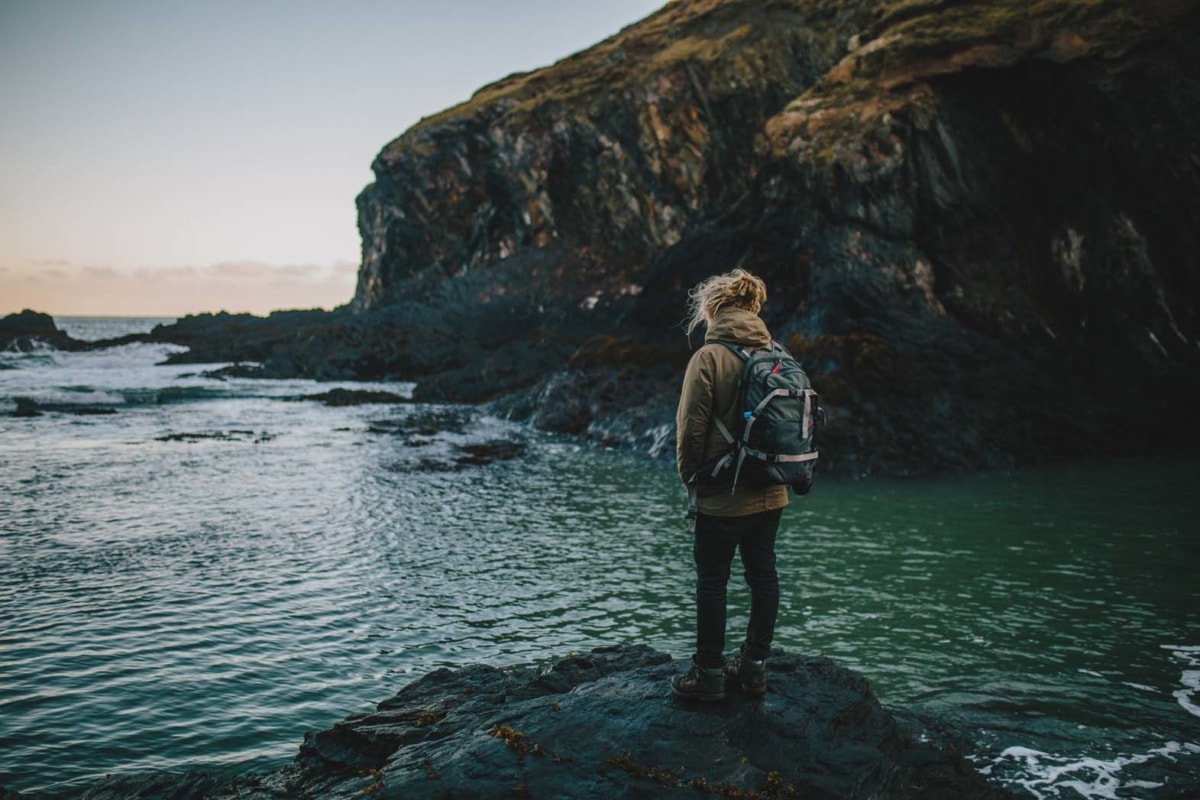
4. Get Rid of Your Stuff
Put simply: The less stuff you own, the more mobile you can be. Plus, selling stuff you don’t need can help you add to your travel funds.
The only essentials I held onto were a backpack, some clothes, toiletries and my laptop. In fact, the only things I have left at my parent’s house now are a few childhood photos and priceless mementos that I couldn’t bear to throw away.
As for everything else, I either threw it away, sold it on Craigslist, donated it to charity or gave it to friends.
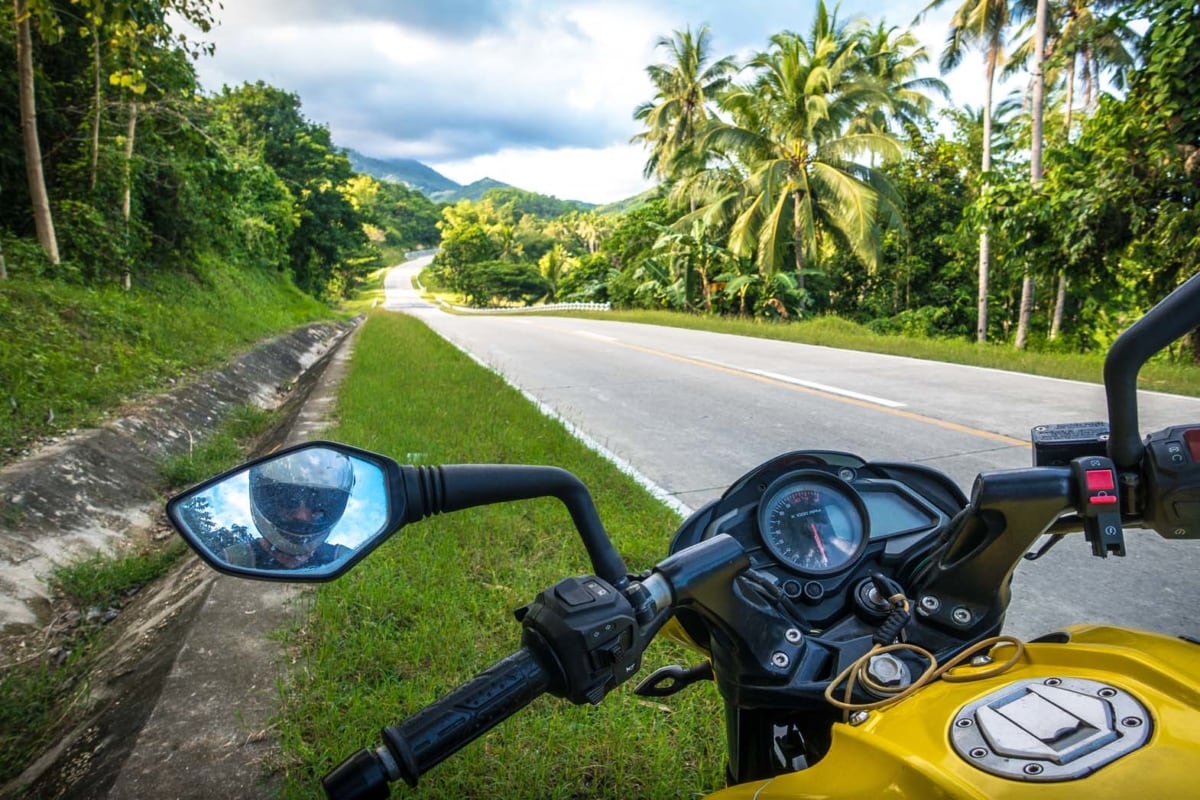
You should first divide your belongings and decide where they might be needed most. Or to whom you’d feel best giving them. For example, I gave my friend my old easel and painting supplies from art school. Hearing that she completed a beautiful series of paintings with them was so valuable to me. Much more so than the money I would have made from selling them to a stranger.
After that, you may still have stuff you need to store. You can either ask your family or friends to hold onto it for you. Or you can pay for storage spaces. For those in the USA, there is a cool option called MakeSpace. The company will pick up your stuff, store it for you and deliver it back to you when you return.
For more, I found this Lifehacker article on “de-crapifying your home” to be helpful.
5. Just Go For It
After all of the planning and the thinking and the preparing, the only step left is just to go for it. This can be the hardest step of all because it’s the one that turns it all into reality. Don’t let your fears hold you back!
My advice? Take it easy and don’t put too much pressure on yourself when you first get started.
Choose a digital-nomad friendly destination with a laid-back pace, steady WiFi and a cheap cost of living, so that your work conditions are ideal and there isn’t a lot of pressure on you.
Secondly, take your time. Don’t try to travel to 10 different places in the first month.
Stay in each place for a week or two at a time so that you can do work and explore slowly. It will take a while to get used to the lifestyle of living remotely and to find your rhythm.
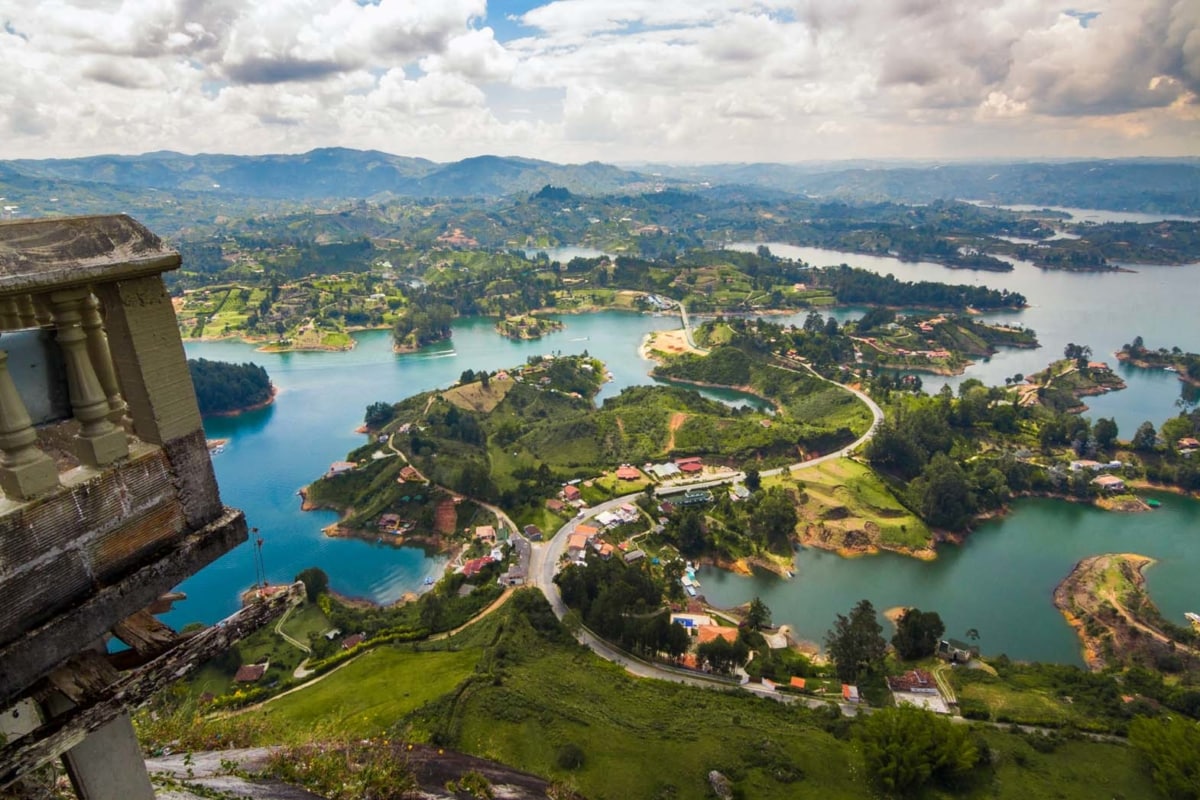
Once you feel more established, you can start moving around a little more. However, I still recommend traveling slowly— you’ll have a much better time when you aren’t in a rush.
Lastly, it’s important to not to stress out about being “perfect.”
Working remotely and living a location-independent lifestyle is tricky and you will make mistakes along the way. I’ve certainly made many, and I’ve learned a lot from all of them. As long as you keep learning, you’ll be absolutely fine.
Starting out on this journey sometimes felt like a terrifying yet exhilarating free fall into the unknown. But, looking back, it’s the best thing I have ever done.
There’s nothing to lose and a world of freedom to gain.
Becoming Location Independent FAQs
-
What does it mean to be location independent?
Being location independent means you aren’t tied to a specific place for your work and are free to live around the world.
-
How do I get location freedom?
One of the easiest ways to get location freedom is to find work that you can do remotely.
-
What is the difference between location independent and digital nomad?
Digital nomads specifically work remote online jobs. Being location independent can include traveling between different short-term jobs.
-
Is it legal to be a digital nomad?
Becoming a digital nomad is legal, though you may have some hoops to jump through regarding taxes and not having a permanent address.
-
Why not to be a digital nomad?
Some of the downsides of being a digital nomad are a lack of permanent community and the stress of not knowing where you’ll be living far in advance.
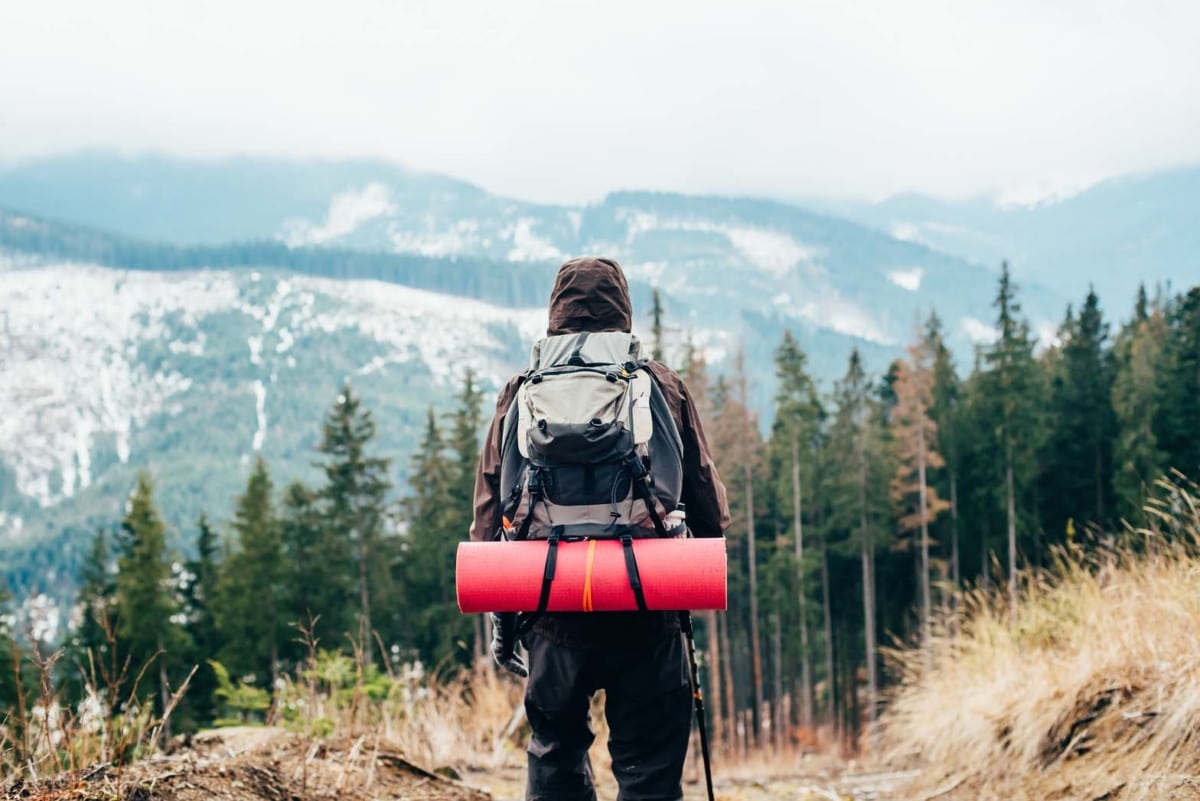
Great tips you shared to find all things about any location. These are so practical tips. thanks for sharing these tips.
I think a lot of people find the idea of being location independent attractive. In practice, though, I meet very few people that make a good living from it and suspect it is something that the vast majority of people can sustain just temporarily.
I’ve been in the living a semi-nomadic lifestyle for a couple years now and it’s not without its challenges. Definitely worth it if you’re the right kinda person though. This was super helpful. Thanks 🙂
Great tips! I think the most important thing to do is to give it a trial period with certain goals in mind; you know to know when to quit or when too continue.
I disagree. I had a “corporate” job in digital marketing e-commerce at an agency in the Tampa Bay area in Florida. Did I make a good living? Yes, probably in light of your comments above. However, at 58 years old, I sold the house, sold the car, and started the digital nomad path to Medellin Colombia. I am sustaining myself – and not temporarily – I have been freelancing for 4 years – choose to work only 18 to 20 hours a week and I earn $2,000 per month. How much do I need monthly in Medellin, you wonder? Total rent, utilities, internet, taxi, food, etc… Max $1,200 – So iyour comment stating” very few people make a good living from it” makes the assumption that you measure success by income or wealth. Obviously, our personal aspirations are strikingly different than yours.
@ Stuart Foster
I had a “corporate” job in digital marketing e-commerce at an agency in the Tampa Bay area in Florida. Did I make a good living? Yes, probably in light of your comments above. However, at 58 years old, I sold the house, sold the car, and started the digital nomad path to Medellin Colombia. I am sustaining myself – and not temporarily – I have been freelancing for 4 years – choose to work only 18 to 20 hours a week and I earn $2,000 per month. How much do I need monthly in Medellin, you wonder? Total rent, utilities, internet, taxi, food, etc… Max $1,200 – So iyour comment stating” very few people make a good living from it” makes the assumption that you measure success by income or wealth. Obviously, our personal aspirations are strikingly different than yours.
Kelly,
Extremely well written article with sound advice for the beginner. Inspirational, but realistic and not sugar coated.
Thank you. Pls give me a shout if you ever come around Colombia or France. I’m 6 months in one country, 6 months in the other.
Thanks Brigitte, You’re absolutely right. Many digital nomads don’t have to earn a lot to enjoy a good lifestyle, because the cost of living in other countries can be so much lower. And you’re also right that it’s not about how much you are earning per month, it’s about whether or not you are enjoying the life you’ve created for yourself.
Thank you! I’m really glad you enjoyed the article. And thank you for the offer to connect in Colombia or France, I’ll let you know if we are in the area. Thanks!
Great post. I have a location independent lifestyle (so I’m not a Digital Nomad, I have an apartment in the UK) which sees me jetting off abroad every 3 weeks or so. I then come home, see friends, unpack, repack and then fly out again.
I don’t want to travel full-time so I use a combination of Trusted Housesitters, Home Exchange, and Airbnb to fund my lifestyle because accommodation is the most expensive part.
I actually make a VERY good income although I personally suggest getting your location independent-type work situation sorted before you leave (although you CAN do it the other way around) so you’re not trying to adapt to the travelling lifestyle, see new places and set up a business all at the same time! This way you just take your established business on the road and you will more likely already have clients instead of trying to get them via Upwork etc whilst on the move.
So I don’t see it as making a living FROM travelling, I just have a business that means I can work anywhere.
Hi Joanne!
I hope you don’t mind me making contact.
I would like to know what you suggestions you have for potential location independent jobs.
I’m a geologist and really want to quit the profession but stumped on where to start.
Thank you for sharing for this advice, it can be
helpful for someone to use it for writing some essay, for instance.
I especially want to notice your capacity to express information in an accessible manner.
As a popular-science blogger, I need to be certain of
every element of the writing to meet inquiring minds with quality information and maintain their interest until the end of the report.
You made me read it until the end